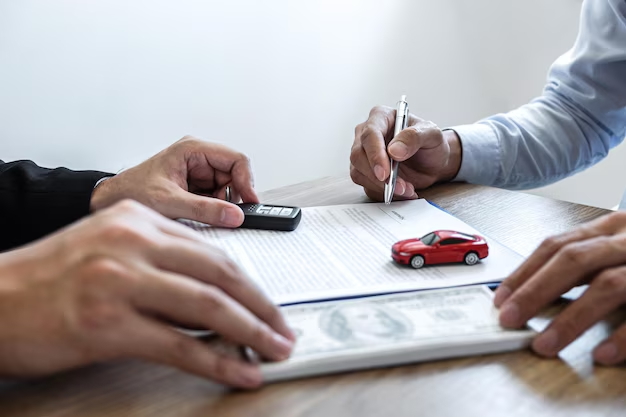Steps to Take After a Car Accident to Ensure a Successful Claim
The unexpected nature of car accidents often leads to confusion, stress, and uncertainty. When you find yourself in such a situation, knowing how to navigate the claim process can provide clarity and peace of mind. This article will guide you through the essential steps to take after a car accident, ensuring that you can make a successful claim while safeguarding your rights and easing the post-accident process.
📋 Initial Steps to Take Immediately After the Accident
Ensure Safety and Seek Medical Attention
The safety of everyone involved is the paramount concern. First, check if there are any injuries and call emergency services if necessary. If you're able, move to a safe location to avoid any further hazards from oncoming traffic.
Accident Reporting
Contact the police to report the accident, regardless of its severity. A police report serves as an essential document in the claim process, providing an official account of the incident.
Exchange Information
Share and collect information with the other driver(s) involved, including:
- Names, addresses, and contact details
- Insurance company and policy numbers
- Driver’s license and vehicle registration details
📝 Gathering and Documenting Evidence
Collect Witness Statements
If there are any bystanders or passengers who witnessed the accident, kindly ask for their contact information. Independent witness testimonies may support your claim significantly.
Take Photographs
Document the scene with photographs. Focus on:
- The accident's impact on each vehicle
- Skid marks and road conditions
- Traffic signals and signs
- Any relevant injuries
Visual evidence often plays a crucial role in verifying details like point of impact and damage severity during claims.
🚗 Navigating the Insurance Claim Process
Contact Your Insurance Company
Inform your insurance provider promptly. Initiating the claim process swiftly helps in gathering accounts when the details are fresh and ensures compliance with any policy-related deadlines.
Understand Your Coverage
Become familiar with the details of your insurance policy. Know your coverage specifics, which could include:
- Liability coverage for damage caused to others
- Collision coverage for repair to your vehicle
- Comprehensive coverage for non-collision events
File the Claim
When filing a claim, keep this information on hand:
- The police report number and contact information
- A detailed account of the accident
- Photographs and witness information
- Your insurance and vehicle details
🤝 Dealing with Insurance Adjusters
Be Prepared and Honest
Insurance adjusters will assess your claim. Cooperate fully and provide them with accurate information. Misrepresenting facts, even inadvertently, can complicate your situation.
Negotiating Settlements
Understanding the factors adjusters consider—such as repair costs, medical bills, and liability—will empower you to negotiate a fair settlement confidently. Remember to:
- Take time to review any settlement offers
- Consult with a legal professional if needed
⚖️ Legal Considerations in Car Accident Claims
Knowing When to Seek Legal Counsel
Consider hiring a legal professional when:
- The accident involved serious injuries or fatalities
- The insurance company denies your claim or offers inadequate settlement
- There's uncertainty or dispute about fault
Statute of Limitations
Be aware of the statute of limitations in your state—this is the time frame within which you can file a lawsuit related to the accident. Timely legal action is crucial to ensure your right to compensation is preserved.
🔗 Related Issues and Concerns
Addressing Uninsured or Underinsured Drivers
Some drivers might not have sufficient insurance coverage. In such cases, your policy may have uninsured or underinsured motorist coverage to aid you.
Handling Hit-and-Run Incidents
If the at-fault driver leaves the scene, promptly report the hit-and-run to the police. Your comprehensive coverage may help cover damages in such situations.
Following Up on Medical Treatments
Maintain records of all medical treatments and expenses related to the accident. These will be crucial in demonstrating the impact on your health and finances during the claims process.
🏁 Wrap-Up: Key Takeaways for a Smooth Claim Process
Navigating the aftermath of a car accident requires prompt action and informed decisions. By following these steps, you can ensure a smoother claim process:
- Ensure safety and seek immediate medical attention
- Report the accident to the police
- Document everything: Utilize witness statements and photographs
- Communicate promptly with your insurance company
- Understand your policy coverage to align expectations
- Cooperate with insurance adjusters and consider settlement negotiations
- Seek legal counsel when necessary to protect your rights
Quick Reference Summary 📌
- Safety First: Check for injuries, call emergency services
- Document: Police report, photos, witness statements
- Inform: Contact insurance, especially about uninsured drivers
- Cooperate: Work with insurance adjusters, be honest
- Consult: Legal advice if disputes or severe injuries occur
- Review Offers: Understand settlement proposals carefully
A proactive approach can significantly support a successful insurance claim, reduce stress, and help you regain normalcy faster after a car accident. Remember, knowledge and preparedness are your greatest allies in this process.

Related Topics
- A Comprehensive Guide On Filing For Child Custody
- A Comprehensive Guide To Bail And Bond Processes
- A Comprehensive Guide To Dealing With An Uninhabitable Apartment
- A Comprehensive Guide To Navigating Your VA Benefits Appeal
- Am I Eligible For Unemployment Benefits?
- Breaking Down Your Rights To Overtime Pay
- Can a Landlord Enter My Rental Property Without Notice?
- Can I Switch From a Paid Lawyer To a Pro Bono Lawyer If I Can No Longer Afford Representation?
- Can Landlord Discriminate Based On Race, Gender, Or Religion? An In-Depth Examination
- Crafting Your Last Testament: A Comprehensive Guide To Writing a Will Without a Lawyer
